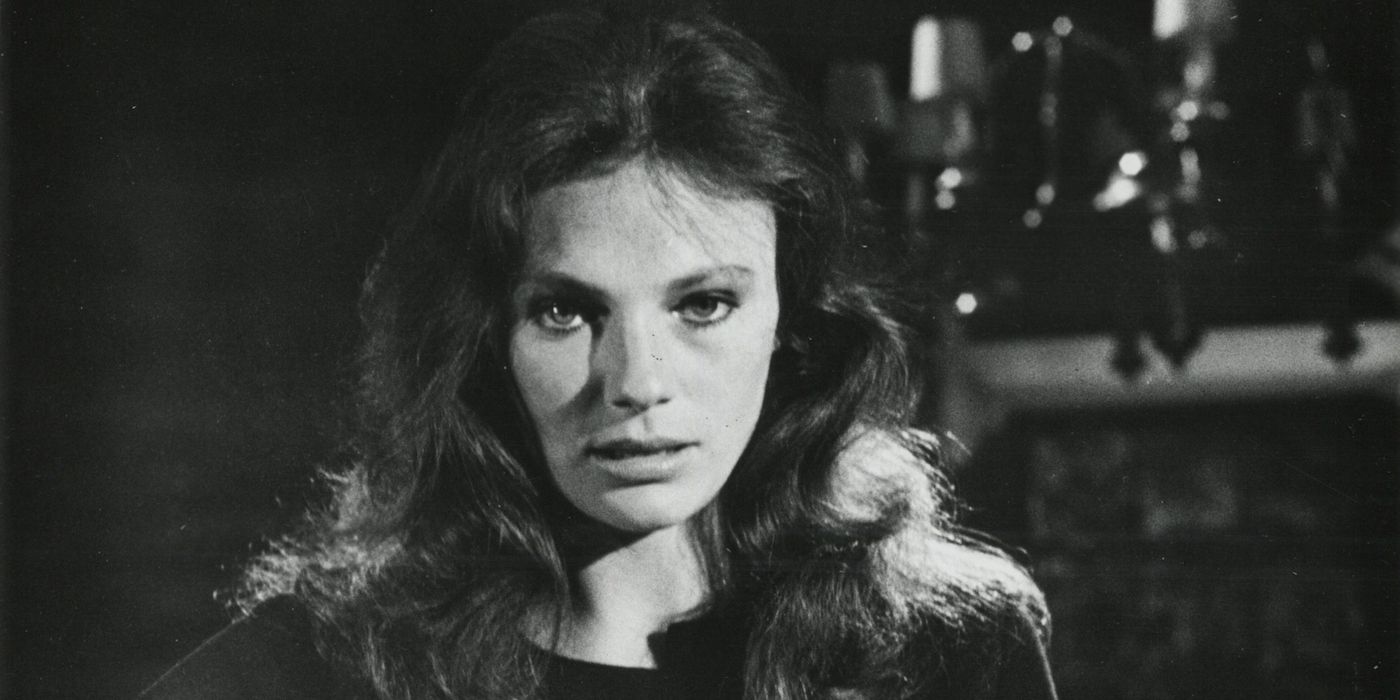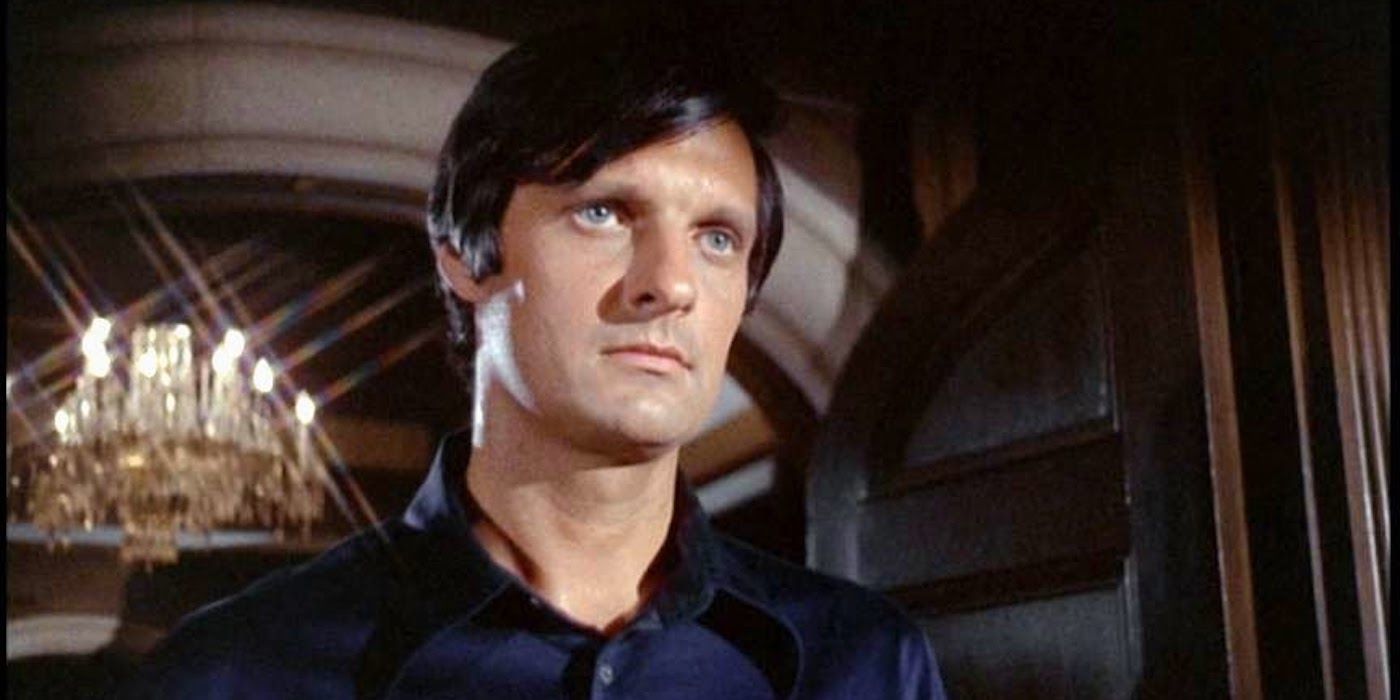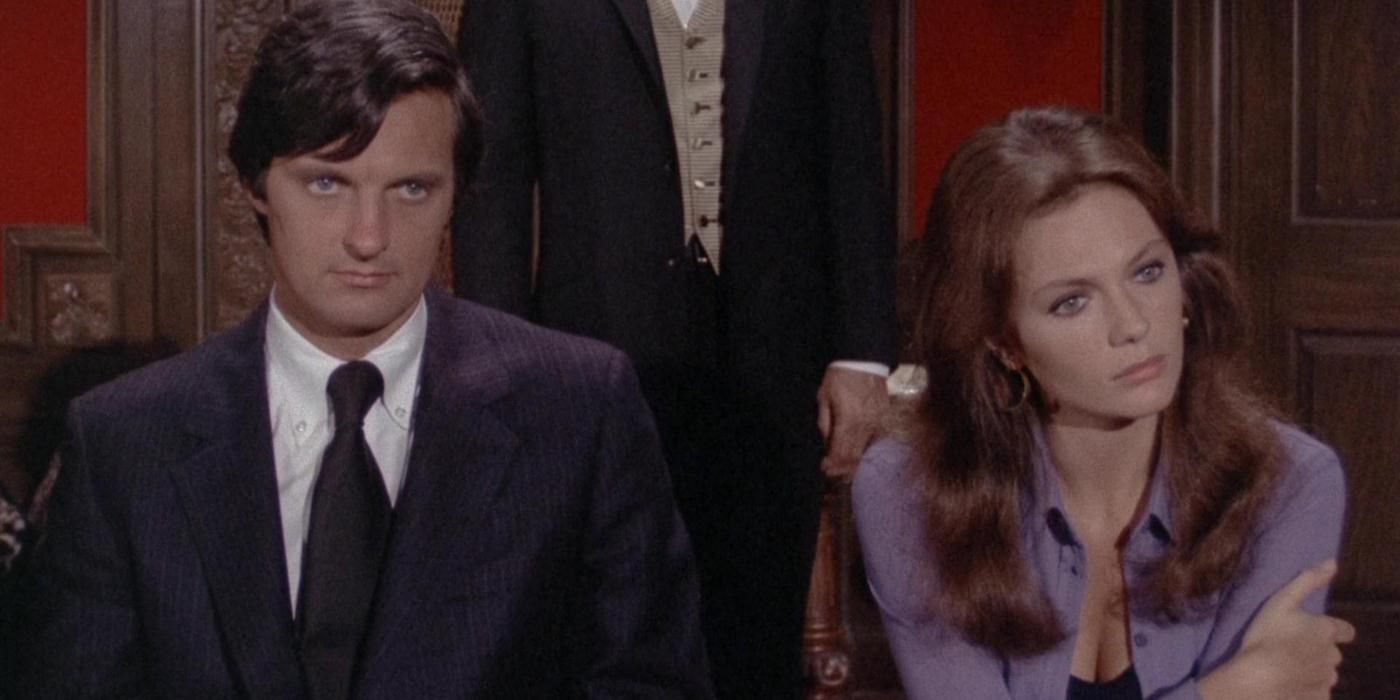The Big Picture
- The Mephisto Waltz is a 1970s horror film that takes the genre in a unique, offbeat direction, with a soul-transferral subplot and a captivating dreamlike atmosphere.
- The film follows a seemingly happy couple whose lives are violently disrupted by supernatural forces, similar to The Amityville Horror, but with a more psychological and insidious approach to horror.
- The Mephisto Waltz is worth watching for fans of The Exorcist, with a languid pace that builds to shocking and haunting sequences, and an eerie atmosphere that will leave a lasting impression.
The 1970s was an epic decade for the horror genre, particularly for films that dealt in some way with satanism or the occult. While The Exorcist can justifiably be considered the king, there are a plethora of noteworthy shockers from this era. 1971's The Mephisto Waltz is a weird, oddly captivating film from screenwriter Ben Maddow (The Asphalt Jungle). Released two years before the late, great William Friedkin's massively influential hit — still as terrifying as ever to this day — the Mephisto Waltz took the genre in a slightly different, more offbeat direction. With its soul-transferral subplot and a Jerry Goldsmith score that writhes and suffocates with melodramatic fury, it's quite the film-going experience even withstanding its baffling story beats and character choices. The film manages to remain magnetic in the face of scrutiny for the way it successfully conjures a dreamlike atmosphere; everything seems unreal for most of the film's duration well before the most unsettling sequences occur.
Every 'The Exorcist' Fan Should Watch 'The Mephisto Waltz'
Helmed by Paul Wendkos, Mephisto Waltz stars a young Alan Alda (looking like he was a stone's throw from the MASH set) as Myles Clarkson and Jacqueline Bisset as his increasingly disturbed spouse Paula. They're an apparently happy couple despite the former's feeling like he has wasted his once-promising musical potential. There's something vaguely similar in this couple's dynamic to that of the Lutzes (James Brolin and Margot Kidder) in the 1979 adaptation of The Amityville Horror. A suburban pair content with their everyday life violently torn asunder as one is overcome by (apparently) supernatural forces. Though Amityville assailed the audience with schlockier tactics, the Mephisto Waltz is more insidious, its horror exponentially more psychological.
The first 30 minutes are focused on the faintly unsettling relationships that bubble to the surface as distrust between the primary players simmers. Predating the Exorcist as well as Richard Donner's terrifying masterpiece The Omen by five years, The Mephisto Waltz occupies an interesting place in the pantheon of '70s horror. While it doesn't scale the heights of the two aforementioned classics, nor is it as indelible as Robin Hardy's one-of-a-kind The Wicker Man, Wendkos' film is a very worthwhile curio in its own right, coasting on an unshakable sense of impending catastrophe. And, it contains a few aces up its sleeve as the sinister plot unfurls. With David Gordon Green's franchise reboot The Exorcist: Believer now in theaters (for better or worse), it's as good a time as any to revisit the eerie, shock-riddled original, and to check out The Mephisto Waltz whilst at it, for it's a film that will continue to scratch that itch for unsettling occult '70s horror.
What Is 'The Mephisto Waltz' About?
The Clarksons, as a pair, are chugging along agreeably until events take a sharp and unexpected turn. Myles is a music journalist (and former piano prodigy) and Paula is his unwavering supporter. Myles' musical ambitions have not been fully realized in his own eyes, but a budding friendship with the virtuosic Duncan Ely (a decidedly menacing Curd Jurgens) may change that. Ely is a celebrated pianist, ingenious in fact, but he is plagued by terminal illness and a desire to continue thriving in the terrestrial realm. Already, an uneasy Don't Look Now-like atmosphere is dredged up sans anything really shocking happening yet, which is a credit to that all-too-valuable filmic commodity: mood.
Fixated on Myles' hands upon their meeting (yes, actually), the dying musician decides to elongate his own lifespan by horrifically unnatural means. With his grown-up daughter Roxanne (Barbara Perkins) in tow, the dastardly pair tune into a seriously demoniac frequency on the way to dismantling the Clarkson unit. Forcing their way into the lives of the young couple by whatever means necessary, the starry-eyed Myles fails to register the gnawing oddness of the whole charade — and Wendkos portrays Miles as unbelievably green and naive — which escalates the slow-mounting terror. His wife, conversely, becomes increasingly startled by the sudden intrusion into their life, and begins to resist in vain — her clashes with the penetratingly eldritch antics of Roxane provide the film with its earliest moments of extreme tension. There's a late-era Hammer quality to much of the flick until this point in its unrelenting weirdness and the steely ambitions of its villains. Unnervingly shot and brimming with simmering looks at lavish parties, it's all pretty psychological until the first of the bodies fall.
Like The Exorcist, The Mephisto Waltz is based on a novel. And the cryptic title itself refers to a portentous passage of music, of course. Some liberties may have been taken upon adaptation, but the core story essentially remains the same. Interestingly, the action here takes place on the Californian coast, which would prove advantageous for some of the important (and shocking) deaths that occur later on. Throughout its runtime, there is a persistent sense of unease. While not as viscerally shocking as The Exorcist, there's a '70s-horror flavor to the film that many filmmakers have gone about attempting to evoke again today.
An Intriguing Precursor to Occult Cinema of the 1970s
Spiritually similar to other underrated flicks such as Ride with the Devil and The Brotherhood of Satan, which also used unique spaces, roads, and an assortment of disarming characters to tell uniquely horrifying stories, The Mephisto Waltz would likely be eaten up by A24 today. Its effective casting, odd plot, and atmospheric cinematography mean it is filled with all the right ingredients. Likewise, its Satanic Panic stylings have been observed in movies since such as Ti West's House of the Devil. As with The Exorcist, there's an ethereal quality to the way the characters behave and interact. The film also makes some fairly bold choices. No being is safe from the devil's influence here, including their daughter. Just when the viewer thinks some characters are unequivocally sure to be spared their lives, the film springs a surprise, and it's shocking despite happening more than once. Like the psychological mystery at the heart of films like The Omen, The Mephisto Waltz introduces a few more characters along the way too, complicating the plotting and adding layers to the histories of its creepy practitioners of devil worship.
While the Mephisto Waltz moves at a fairly languid pace for its first 30 or 40 minutes, it begins to lurch from scene to scene jarringly once things really kick into gear. There is a truly haunting ritual sequence wherein Myles' body is overtaken by Duncan's consciousness, and it's a bizarrely memorable passage in the film reminiscent of other movies of this ilk but containing its own singular personality. For fans of The Exorcist, The Mephisto Waltz is a left-field must-watch. Its inherent weirdness is its most compelling feature, the nerve-jangling Jerry Goldsmith score keeps things hectic, and there are genuine risks taken amidst the moodiness. It's like waking from a dream that leaves a lingering, chilly aftertaste. You won't get it out of your head quickly.




